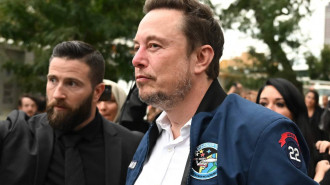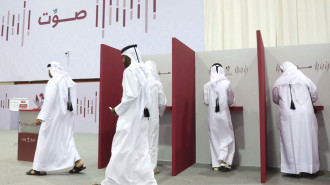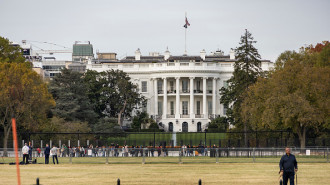Former finance minister Mohammad Safadi agrees to be next Lebanese prime minister, FM says
Lebanon's political factions reportedly agreed to nominate Safadi, a billionare businessman and former finance minister, as former Prime Minister Saad al-Hariri's successor on Thursday, local media reported.
"I confirm that we have been in contact with minister Safadi and he has agreed to take on the position of prime minister if his name gets agreement with the main political forces in government," Bassil said, according to Reuters.
"If matters move normally, the consultations should begin on Monday with Safadi named at the end of them, otherwise we will continue to go in circles waiting to agree on a name."
Reports of Safadi's nomination saw protesters return to the streets in droves on Thursday night.While Lebanese armed forces had earlier in the day cleared roads blocked by demonstrators in the capital Beirut, several main thoroughfares were again blocked off by demonstrators that evening in protest against the reported nomination.
Protesters in the northern city of Tripoli demonstrated outside Safadi's residence, Al-Modon reported, and demonstrators in the capital returned to the luxury yacht and beach club Zaytouna Bay.
|
|
Activists had last week occupied Zaytouna Bay, a luxury club built on illegally privatised public land which is widely seen as a symbol of corruption and the privatisation of Beirut's coastline.
Safadi is the majority shareholder of Stow Group, which runs the luxury marina and club as a joint venture alongside Solidere.
Hospitals strike
Lebanon's hospital launched a one-day strike, halting the admission of patients except for emergency cases, dialysis and chemotherapy.
Slyman Haroun of the Hospitals Syndicate warned last week that Lebanon's ongoing currency crisis was threatening a shortage of vital medical equipment.
"Patients may start dying because of the lack of filters, for example," he said. "Our stocks won't last more than a month. The government must pay its dues to the hospitals right away and banks should ease transactions so we can pay importers."
Haroun requested the government pay pending bills to hospitals and doctors totalling more than $1 billion, in addition to banks facilitating imports of medical supplies, or face strike action.
The government failed to meet those demands, prompting Friday's strike.
Protesters have also called on the government to provide free and fair access to healthcare throughout Lebanon.
Follow us Twitter and Instagram to stay connected





 Follow the Middle East's top stories in English at The New Arab on Google News
Follow the Middle East's top stories in English at The New Arab on Google News


